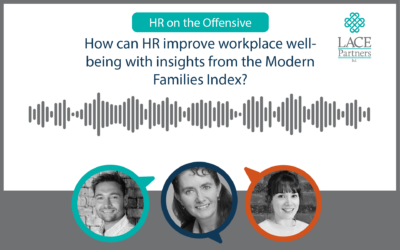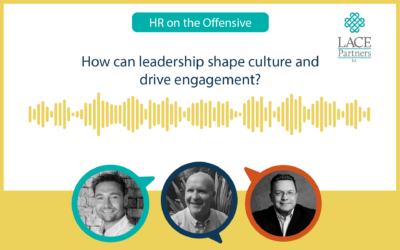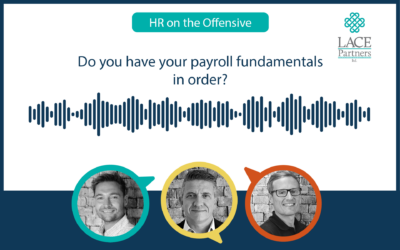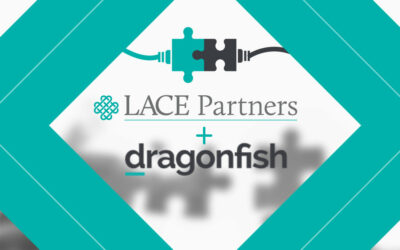In our latest podcast episode, Anna Rasmussen, founder of Openblend, engages in a compelling conversation with LACErs Chris Horton and Chris Howard about the pivotal role of individual 1-2-1s in crafting extraordinary experiences for individuals.
This conversation adds a new chapter to our EX revolution journey, which pursuits a more holistic approach to employee experience.
As a seasoned expert in one-to-one conversations, Anna provides insights into line managers’ fundamental impact on driving employee engagement. A good 1-2-1 between manager and individual must satisfy specific criteria to be structured, focused, consistent, and personal; Anna then expands on why this is so important to avoid falling into the habit of unprepared and plain conversations.
The discussion unfolds on the organisation’s responsibility to arm line managers with the essential tools for enhancing the overall employee experience. On this topic, Anna delved into the significance of Openblend’s research on performance enablement, shedding light on how the importance of bridging the communication gaps between manager and employees. You can also watch the webinar about performance enablement here.
A particularly intriguing point surfaces as Anna expands on the importance of equipping line managers “in the moment”. As research proves that 69% of managers feel uncomfortable communicating with their employees (Harris Poll), this strategic approach would empower them with real-time solutions that create more comfortable and meaningful conversations. The discussion takes a nuanced turn as the trio navigates the importance of acknowledging that ‘one size doesn’t fit all‘ in crafting diverse employee journeys.
Anna highlights that every single stage of the experience journey must be unique, and for managers to adequately enable their teams to develop the soft skills they need, they must demonstrate that they really understand and care about their people and their needs.
The last part of the discussion then revolves around how AI can empower managers to optimise their time and efforts in enhancing the 1-2-1 experience. Additionally, AI can support employees by facilitating the development of well-structured and purposeful learning paths, fostering a more effective learning experience.
You may also be interested in:
How can you craft holistic employee experiences?
Why employee listening is key to good experience
What is well-being’s role in the employee experience revolution?






